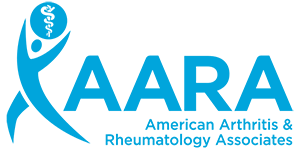Gout
What is Gout?
Gout is a type of inflammatory arthritis characterized by sudden and severe attacks of pain, swelling, redness, and tenderness in one or more joints. Gout occurs when the body is unable to eliminate uric acid through normal excretory processes and this uric acid crystals build up in the joints. When the body is unable to remove the uric acid, the excess can form sharp, needle like crystals in the joints, leading to pain and discomfort. Commonly known "Gout attacks", the gout flares are typically more intense within the first 4 to 12 hours, usually peaking within 12 to 14 hours, but may last for several days to weeks. One of the most common joints impacted by gout is the big toe; however, gout can affect other joints including the knees, ankles, wrists, elbow, and fingers.
What are Symptoms of Gout?
Without warning, gout may manifest suddenly and deliver intense joint pain. Some common symptoms include:
- Intense joint pain, commonly in the big toe, but may occur with other joints including the knees, ankles, wrists, elbow, and fingers.
- Inflammation and redness of the joints, which become swollen, tender, warm, and red.
- Stiffness or limited range of motion, as gout progresses or gout flares occur, it may become difficult to move the impacted joint.
- Ongoing discomfort, post the severe pain and gout flare up, joint discomfort may last days to weeks.
- In chronic cases, patients can develop lumps under the skin. These lumps are deposits of uric acid buildup and they may lead to permanent damage (this condition is called tophi).
Gout symptoms may be triggered by such factors including dietary (consuming foods high in purines), obesity (may lead to increased uric acid production), dehydration, medications (such as diuretics), and genetic (due to family medical history).
What are the Treatment Options for Gout?
Currently, there is not a known cure for gout, but the disease can definitely be controlled. Medications exist to assist in managing pain and inflammation during attacks. A physician may also develop a long-term treatment plan to lower uric acid levels in the blood, which ultimately results in fewer, or even the elimination, of future attacks of gout.
Medications – there are several medications traditionally used for treating gout. Some medicines are used to treat acute attacks and other prevent future attacks. For acute attacks nonsteroidal anti-inflammatory drugs (NSAIDs), colchicine, or corticosteroids to reduce pain, swelling and inflammation. Other medications, such as allopurinol or febuxostat, lower the uric acid levels and prevent future attacks. For severe cases of gout including tophi, there is an intravenous medication that lowers uric acid levels dramatically decreases tophi and helps prevent damage to the joints.
Lifestyle – changes to your overall daily health routine may include weight management to reduce the strain on joints; exercise to keep your joints flexible and improve overall health; and stress management techniques to reduce stress (which can trigger gout attacks). Additionally, staying hydrated throughout the day can assist in the treatment of gout. Using ice packs during gout flares may ease joint discomfort. And dietary modifications may assist in the prevention of joint "flare ups" like reducing purines (red, shellfish, alcohol, beer, etc.). Dr. Carter remains on the cutting edge of research in rheumatology and has developed a unique combination of supplements that can help in treating gout. Ask about it at your visit.
Living with Gout
Involving a combination of medical treatment, lifestyle changes, and preventative care, living with gout may be a challenge but it is manageable. Working with your healthcare provider, managing your diet and a healthy weight, avoiding triggers, and staying hydrated may all help improve the impact of gout in daily life. Gout is a chronic condition. By managing symptoms and following a treatment strategy, overall wellbeing can definitely improve.
Patient Care is our Priority
While there is not a known cure for gout, Dr. Carter and his staff at Recovery Rheum are here to help you every step of the way. We will prepare a treatment to assist in improving prognosis through medications, lifestyle changes, and regular exercise. Additionally, we can help you find support throughout the Tampa area including support groups, educational resources, and other therapies. Finding the right balance is key, and we understand that living with this disease is not easy. However, by utilizing the techniques outlined here, your attacks of gout can become a distant memory.







